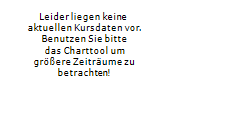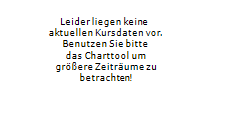
- Oncocyte first to published randomized interventional data to rule-in for biopsy in high-risk patient population
- Study shows that monitoring with Oncocyte's assay significantly reduces time to rejection diagnosis in patients with newly developed donor-specific antibodies
- Early detection of transplant rejection is growing in significance as novel therapeutic treatments show promising early results in antibody mediated rejection.
- Study published in Nephrology Dialysis Transplantation
IRVINE, Calif., Dec. 02, 2024 (GLOBE NEWSWIRE) -- Oncocyte Corp.,?(Nasdaq: OCX), a diagnostics technology company, today?announced additional favorable data regarding its lead assay VitaGraft,?which was published in the journal, Nephrology Dialysis Transplantation.
VitaGraft Kidney quantifies the amount of DNA fragments in transplant patients' blood that originate from the donor organ, a key biomarker for assessing graft health. This process is commonly referred to as donor-derived cell-free DNA (dd-cfDNA) testing and is widely used in clinical practice today. In this latest study, Oncocyte's proprietary diagnostic dd-cfDNA test using digital PCR was able to diagnose antibody-mediated rejection (AMR) in kidney transplant recipients nearly a year ahead of standard protocols1.
"We are excited to see our dd-cfDNA technology demonstrate strong predictive value for AMR, supporting clinicians in identifying AMR in patients sooner, thereby enhancing the opportunity for better outcomes," said Oncocyte Chief Science Officer Dr. Ekkehard Schuetz. "The trial's results further validate dd-cfDNA as a critical biomarker that can bridge diagnostic gaps for transplant patients."
For further context, de-novo donor specific antibody (dnDSA) is a routine biomarker used in kidney transplant management. The appearance of dnDSA in a patient -- that is, the patient is found to be dnDSA-positive (dnDSA+) -- signals an increased risk of AMR. This latest study shows that compared to standard of care, VitaGraft Kidney can significantly reduce the time to diagnosis of AMR in dnDSA+ patients. It is also the first randomized interventional study to validate any dd-cfDNA technology as a rule-in test for biopsy in a high-risk population.
Catching AMR early, when kidney graft loss can be minimized, is becoming increasingly important as physicians explore the use of drugs, including the anti-CD38 drugs felzartamab and daratumumab, to manage rejection. Monitoring with VitaGraft in this high-risk patient population could support early intervention with these new therapeutic options.
Once patients are on therapy, monitoring for therapeutic efficacy is also important to manage potential unwanted side effects. Publications using VitaGraft to monitor for efficacy for both aforementioned drugs can be found in the New England Journal of Medicine and Transplant International. In addition, earlier this year, Oncocyte signed an agreement with a European biotechnology company to be the provider of dd-cfDNA testing for a Phase II clinical trial for a separate therapeutic in AMR.
Oncocyte expects to submit for claims expansion to its payor, MolDX2, to support the use of VitaGraft for these high-risk patients in the clinic. If granted, it would expand the use case beyond the current for-cause claim, opening significant new revenue opportunities.
In sum, this clinical trial provides compelling evidence for dd-cfDNA monitoring as a tool for enhancing early intervention and improving outcomes for patients at increased risk of transplant rejection. Oncocyte scientists and inventors of the technology, Dr. Schuetz, Julia Beck and Kirsten Bornemann-Kolatzki, co-authored the study, which was initiated by researchers at Charité - Universitätsmedizin Berlin under the leadership of Prof. Klemens Budde. The study was published in Nephrology Dialysis Transplantation: Oxford Academic and may be found by accessing this link.
Additional study details: Highlighting potential for improved patient outcomes, as well as implications for broader clinical applications and future therapies
The interventional randomized trial, conducted between June 2021 and July 2023, involved 40 kidney transplant recipients with dnDSA, assessing longitudinal dd-cfDNA monitoring as a guiding tool for diagnostic biopsy compared to standard clinical practices. Oncocyte's proprietary dd-cfDNA technology was able to detect the onset of AMR significantly earlier in patients by guiding the indication for biopsy (median time from inclusion to diagnosis: 2.8 months) compared to the control group using standard of care (14.5 months). As noted above, this early intervention could offer a valuable advantage in transplant care by enabling prompt treatment before irreversible damage occurs.
"This study underscores the impact of dd-cfDNA as a critical biomarker for early AMR detection, providing healthcare teams with timely data enabling them to initiate treatments sooner," said Dr. Aylin Akifova, first author from Charité.
This study also suggests that dd-cfDNA monitoring could also be instrumental in identifying subclinical AMR-a silent condition that, if undiagnosed, can lead to significant graft damage. Additionally, the findings come at a crucial time, as mentioned above, as promising new treatments, including CD38-targeted therapies, are showing unprecedented efficacy in treating AMR. Early diagnosis with dd-cfDNA could provide the earliest window for intervention, offering an advantage for patients suffering from AMR, a disease with historically very limited treatment options.
"We congratulate Charité's research teams on these compelling findings, which further underscore our mission to empower clinicians with tools for precision diagnostics while also democratizing access to novel molecular diagnostic testing to improve patient outcomes," said Josh Riggs, CEO of Oncocyte. "We look forward to expanding the clinical applications of dd-cfDNA technology and supporting transplant communities worldwide with our innovative diagnostic solutions."
About Oncocyte
Oncocyte is a diagnostics technology company. The Company's tests are designed to help provide clarity and confidence to physicians and their patients. VitaGraft is a clinical blood-based solid organ transplantation monitoring test. GraftAssure is a research use only (RUO) blood-based solid organ transplantation monitoring test. DetermaIO is a gene expression test that assesses the tumor microenvironment to predict response to immunotherapies. DetermaCNI is a blood-based monitoring tool for monitoring therapeutic efficacy in cancer patients. For more information about Oncocyte, please visit https://oncocyte.com/. For more information about our products, please visit the following web pages:
VitaGraft Kidney - https://oncocyte.com/vitagraft-kidney/
VitaGraft Liver - https://oncocyte.com/vitagraft-liver/
GraftAssure - https://oncocyte.com/graftassure/
DetermaIO - https://oncocyte.com/determa-io/
DetermaCNI - https://oncocyte.com/determa-cni/
VitaGraft, GraftAssure, DetermaIO, and DetermaCNI are trademarks of Oncocyte Corporation.
CONTACT:
Jeff Ramson
PCG Advisory
(646) 863-6893
jramson@pcgadvisory.com
Forward-Looking Statements
Any statements that are not historical fact (including but not limited to statements that contain words such as "will," "believes," "plans," "anticipates," "expects," "estimates," "may," and similar expressions) are forward-looking statements. These statements include those pertaining to, among other things, the expectation that Oncocyte will submit for claims expansion to MolDX to support the use of VitaGraft for high-risk patients in the clinic, which may expand the use case and open significant new revenue opportunities, the company's anticipated expansion of clinical applications of dd-cfDNA technology, the company's goal to support transplant communities worldwide with its innovative diagnostic solutions, and other statements about the future expectations, beliefs, goals, plans, or prospects expressed by management. Forward-looking statements involve risks and uncertainties, including, without limitation, risks inherent in the development and/or commercialization of diagnostic tests or products, uncertainty in the results of clinical trials or regulatory approvals, the capacity of Oncocyte's third-party supplied blood sample analytic system to provide consistent and precise analytic results on a commercial scale, potential interruptions to supply chains, the need and ability to obtain future capital, maintenance of intellectual property rights in all applicable jurisdictions, obligations to third parties with respect to licensed or acquired technology and products, the need to obtain third party reimbursement for patients' use of any diagnostic tests Oncocyte or its subsidiaries commercialize in applicable jurisdictions, and risks inherent in strategic transactions such as the potential failure to realize anticipated benefits, legal, regulatory or political changes in the applicable jurisdictions, accounting and quality controls, potential greater than estimated allocations of resources to develop and commercialize technologies, or potential failure to maintain any laboratory accreditation or certification. Actual results may differ materially from the results anticipated in these forward-looking statements and accordingly such statements should be evaluated together with the many uncertainties that affect the business of Oncocyte, particularly those mentioned in the "Risk Factors" and other cautionary statements found in Oncocyte's Securities and Exchange Commission (SEC) filings, which are available from the SEC's website. You are cautioned not to place undue reliance on forward-looking statements, which speak only as of the date on which they were made. Oncocyte undertakes no obligation to update such statements to reflect events that occur or circumstances that exist after the date on which they were made, except as required by law.



